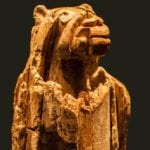 Technology
Technology  Technology
Technology  Weird Stuff
Weird Stuff 10 Wild Facts About Taxidermy That You Probably Didn’t Know
 Travel
Travel 10 Beautiful Travel Destinations (That Will Kill You)
 Miscellaneous
Miscellaneous 10 Modern Marriage Rituals Born from Corporate Branding
 Weird Stuff
Weird Stuff Ten Bizarre Visions of 2026 from Fiction
 Weird Stuff
Weird Stuff The 10 Unluckiest Days from Around the World
 Food
Food 10 Modern Delicacies That Started as Poverty Rations
 Movies and TV
Movies and TV 10 Shared TV Universes You’ve Likely Forgotten About
 Weird Stuff
Weird Stuff 10 of History’s Greatest Pranks & Hoaxes
 Miscellaneous
Miscellaneous 10 LEGO Facts That Will Toy with Your Mind
 Technology
Technology 10 Stopgap Technologies That Became Industry Standards
 Weird Stuff
Weird Stuff 10 Wild Facts About Taxidermy That You Probably Didn’t Know
 Travel
Travel 10 Beautiful Travel Destinations (That Will Kill You)
Who's Behind Listverse?

Jamie Frater
Head Editor
Jamie founded Listverse due to an insatiable desire to share fascinating, obscure, and bizarre facts. He has been a guest speaker on numerous national radio and television stations and is a five time published author.
More About Us Miscellaneous
Miscellaneous 10 Modern Marriage Rituals Born from Corporate Branding
 Weird Stuff
Weird Stuff Ten Bizarre Visions of 2026 from Fiction
 Weird Stuff
Weird Stuff The 10 Unluckiest Days from Around the World
 Food
Food 10 Modern Delicacies That Started as Poverty Rations
 Movies and TV
Movies and TV 10 Shared TV Universes You’ve Likely Forgotten About
 Weird Stuff
Weird Stuff 10 of History’s Greatest Pranks & Hoaxes
 Miscellaneous
Miscellaneous 10 LEGO Facts That Will Toy with Your Mind
10 Writers Who Stole Their Greatest Works From Other Authors
Plagiarism, passing off other people’s words and ideas as your own or failing to properly attribute other people’s contributions to your work, is, it seems, almost as old as writing itself. The first documented case of plagiarism concerned the poet Martial in the first century AD. Martial was incensed that other poets were using his words without his permission and wrote to a suspected plagiarist:
If you’re willing that they be called mine, I’ll send you the poems for free.
If you want them to be called yours, buy this one, so that they won’t be mine.[1]
Despite ever more sophisticated means of detecting plagiarism, writers, journalists, and presidential hopefuls still keep trying to get away with it. Here are ten who didn’t.
10 The Romance Novelist

Cristiane Serruya was a “bestselling” romance novelist when she was accused in 2019 of plagiarizing not one but dozens of other authors. It was said that she copied passages word-for-word from other novels.
Her plagiarism was first spotted by Courtney Milan, who recognized her own work and posted about it on her blog, after which several other authors also spotted their words among the pages of Serruya’s books and began to tweet about their discoveries. It soon created a frenzy, with authors and readers combing through her books to find examples of plagiarism.
Cristiane Serruya had been a successful lawyer for over 20 years in Brazil before leaving to take up writing because, she said, she loved to write. She had published 30 novels in less than seven years, which is impressive. Normally.
Rather than denying the plagiarism, Serruya took the unusual step of blaming the ghostwriter who she had hired for $5 an hour, which did not improve her standing in the writing community. She soon shut down her Twitter account and her website. Her books, however, remained on sale, though many are listed as “not currently available.”
Despite the large amount of evidence that her work was plagiarized, there was little that any of the affected writers could do, given the costs of bringing a lawsuit against a person in another country.[2]
9 The Chick Lit Author
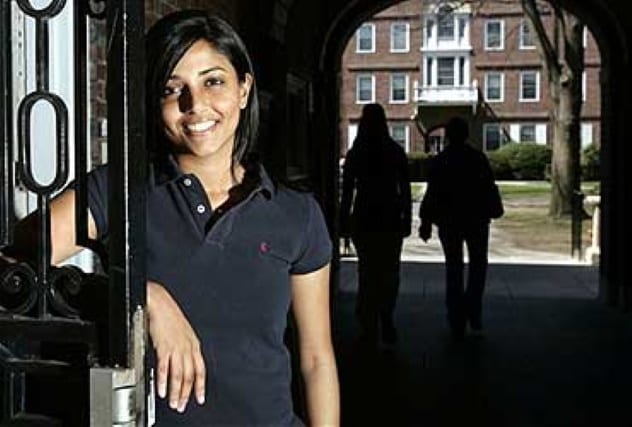
In 2006, at the age of 18, Kaavya Viswanathan published her debut novel, How Opal Mehta Got Kissed, Got Wild, and Got a Life, which seemed a great achievement. Viswanathan was a Harvard undergraduate, while her main character was a bright girl who was desperate to get into Harvard. The tagline of the book was “How far would you go for that one thing you’ve always wanted?”[3]
The answer became clear very soon after publication. The book quickly climbed the bestseller charts, which also included a similar novel by Megan McCafferty about an aspirational young woman. This inevitably drew comparisons, which was unfortunate, since closer inspection showed that Viswanathan had lifted large sections of McCafferty’s book. Journalists at The New York Times found at least 29 passages that were “strikingly similar.”
When challenged, Kaavya Viswanathan admitted “unconscious plagiarism.” The book, which had attracted a $500,000 advance, was soon withdrawn by the publishers. However, the scandal doesn’t seem to have done Viswanathan any harm. She moved swiftly on to a new career. In the law.
8 The Classicist
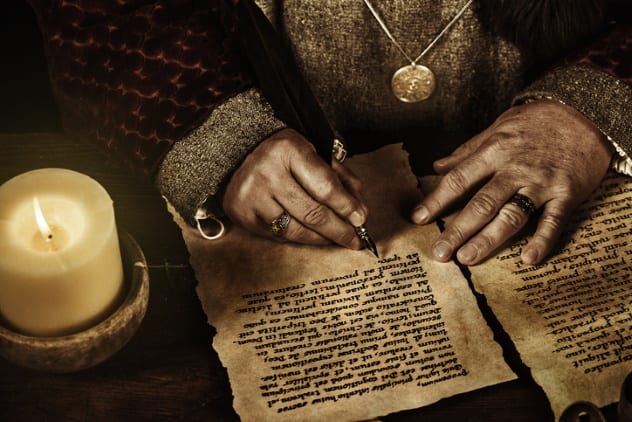
Plagiarism isn’t a new thing, but in 1747, William Lauder managed to put a twist on it that few have repeated to this day.
Lauder was a classical scholar at Edinburgh University but was, it is said, bitter about his lack of public recognition. He came up with a cunning plan to secure his reputation by matching his wit against John Milton, celebrated author of Paradise Lost.[4]
He wrote a series of essays “proving” that the great epic poem was a plagiarized work, full of stolen quotations. He expected that his reputation as a classical scholar would be made by the articles. In order to “prove” his theory, he inserted lines from Paradise Lost into the Latin translations of older works, hoping that this would convince people that Milton had stolen them.
So, in trying to prove that Milton was a plagiarist, he plagiarized Milton’s work and attributed it to earlier writers. What he didn’t take into consideration, of course, was that the original versions did not contain these extra lines, and the fraud was soon detected. Lauder was forced to confess and apologize, though he later tried to pass the affair off as a joke.
It did little for his career as a scholar, however, and he was forced to abandon academia to become a shopkeeper in the West Indies.
7 The Historian

Historian Stephen Ambrose was already a bestselling nonfiction writer when he published his new book about a World War II bomber pilot, so when another historian recognized passages from his own work, it was assumed to be a mistake. Ambrose had credited the other writer in his footnotes but had failed to add quotation marks around his writing, thus making it look like his own. A simple mistake, surely. Ambrose apologized, and the other writer accepted the apology.
However, the incident caused writers at Forbes magazine to dig a little deeper. They found several more passages, by other writers, in the book, as well as the same pattern of “misattribution” in his previous works, too. Ambrose was a little less apologetic when these “mistakes” came to light, saying, “If I am writing up a passage and it is a story I want to tell and this story fits and a part of it is from other people’s writing, I just type it up that way and put it in a footnote.”[5]
After the historian’s death in 2002, it was alleged that his most famous work, a biography of Dwight D. Eisenhower, was based on fabricated interviews and invented meetings. He claimed to have spent “hundreds and hundreds of hours” with the former president, working in Eisenhower’s office two days a week. The evidence suggests, however, that they met for a maximum of around five hours. On several occasions when Ambrose claimed they were meeting in his office, Eisenhower was actually somewhere else entirely.
Oh dear.
6 The Doctoral Candidate
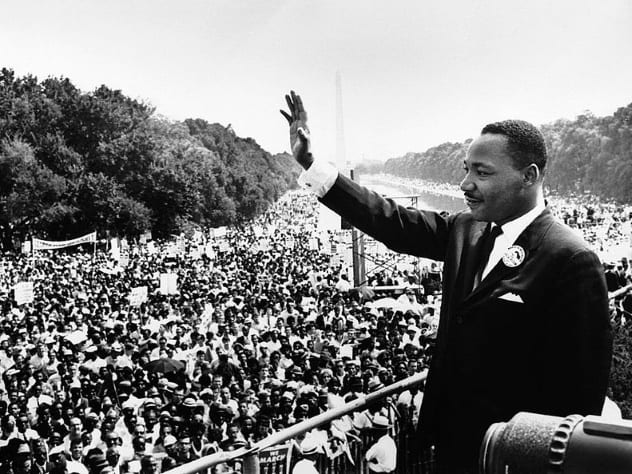
Martin Luther King Jr. was a great man. It seems, however, that he may not have been a great scholar. In 1990, it was revealed that he had plagiarized “substantial parts” of his doctoral thesis, entitled “A Comparison of the Conception of God in the Thinking of Paul Tillich and Henry Nelson Wieman.” The historian who had been appointed to manage the large collection of documents left by the civil rights leader, admitted, reluctantly, that his researchers had uncovered ideas, sentences, and entire passages taken from other sources without acknowledgement.
Normally, when a thesis has been proven to be plagiarized, the university concerned will remove the offending work from their library. However, for obvious reasons, Dr. King’s thesis is still available to view at Boston University, and, though a panel of academics met to discuss the matter, they voted not to strip him of his doctorate.
Dr. King is also alleged to have plagiarized his most famous “I Have a Dream” speech from another political writer, Archibald Carey Jr. There are passages of striking similarity.[6] However, whether or not Carey said it first, Martin Luther King certainly said it best, and his speech had an impact on an entire generation.
5 The Conservationist
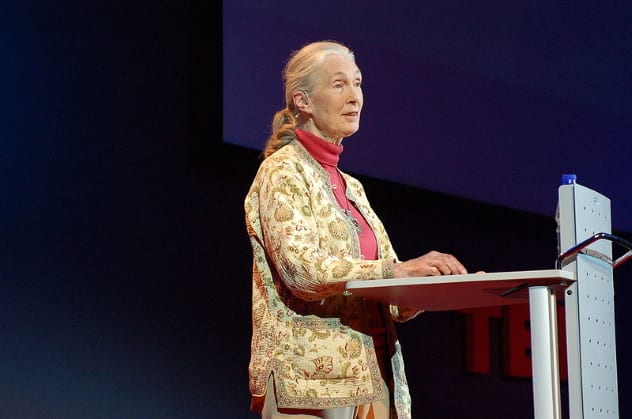
Jane Goodall is one of the world’s leading primatologists and had published a number of books on apes when she took a literary detour and wrote a book on plants in the early 2010s. A reviewer for The Washington Post recognized portions of the book and, after some investigation, published an article alleging there were at least 12 sections of the book that had been lifted directly from websites, including Wikipedia.
It was not only the lack of attribution that caused concern. Many of the sources were deemed to be of poor quality, including one which appears to have been taken directly from the sales pitch of a website that advertises organic tea.
Goodall blamed her “chaotic method of note taking” for the error, saying, “I’m not methodical enough, I guess.” She admitted to not citing her sources correctly.[7] She promised to correct the errors in the second edition and promised to post an explanation on her blog, though commentators seemed to wait in vain for it to arrive.
Perhaps she is still checking her facts.
4 The Kid
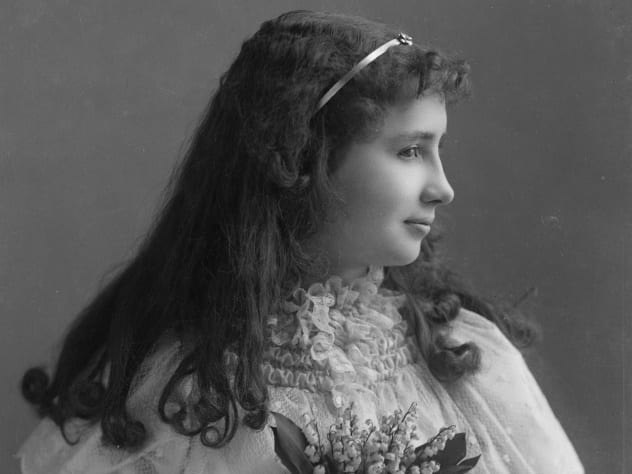
Is plagiarism ever excusable? Well, maybe sometimes. Helen Keller was a blind and deaf 11-year-old when she wrote a story called “The Frost King.” It was published in a school magazine and then republished in a journal for deaf-blind educators.
Shortly afterward, it was discovered that the story strongly resembled a previously published work, The Frost Fairies. Keller, who went on to an extremely successful career as a writer, told the story of how it happened in her autobiography. She said she did not remember having read Frost Fairies, and she had never owned the book, but through questioning her friends and family, she finally discovered that she may have read the book while staying with a friend.[8]
She was “tried” in a school “court,” and after a long interrogation, the jurors were split 50/50 on whether she had intentionally plagiarized the story or whether she had been subject to “cryptomnesia,” where a memory is confused with original thought. The tie-breaking vote went in her favor, and she was “acquitted.” The experience was understandably traumatic for such a young author, and she said that she gave up writing fiction afterward because she had difficulty distinguishing her own ideas from recalled memories.
In 1903, Mark Twain wrote to Helen Keller to praise her writing and to lend his support against the accusations of plagiarism, saying, “As if there was much of anything in any human utterance, oral or written, except plagiarism!” He maintained that art is theft and that he had himself unintentionally plagiarized the words of others, as, he was sure, had the “gang of dull and hoary pirates” who had presided at her trial, “piously setting themselves the task of disciplining and purifying a kitten that they think they’ve caught filching a chop!”
Well said, Mr Twain.
3 The Young Pretender

Helene Hegemann was only 17 when she published her debut novel and took the German literary world by storm. The novel was nominated for awards, and critics praised its gritty realism. Hegemann was invited on chat shows and featured in dozens of magazines. She was riding high.
And then a blogger pointed out its similarity to a previously published novel. Further scrutiny brought to light more examples from other writers. There was even a suggestion that the book had not been written by her at all but by her father, which she denied.[9]
Far from being apologetic, however, Hegemann defended herself, saying, “There is no such thing as originality anyway, there is just authenticity.” And she may have had a point, since one of the disputed passages had been lifted from from an author who had lifted it from the filmmaker Jim Jarmusch, who had himself admitted to lifting it from Jean-Luc Goddard. (Who knows where Goddard stole it from.)
Hegemann’s publishers denied that it was plagiarism and called it “intertextuality.” That, apparently, is okay.
2 The Journalist
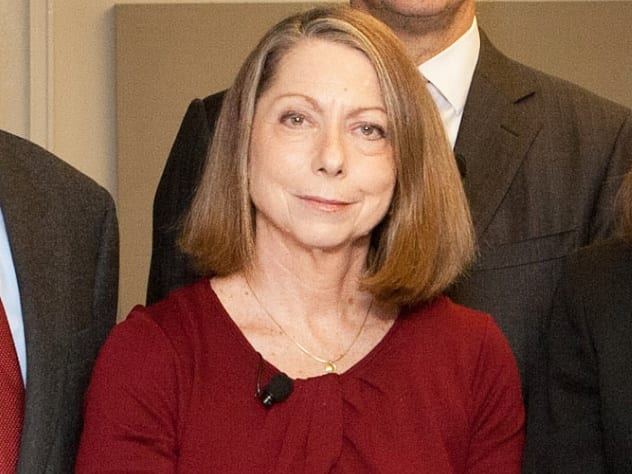
Jill Abramson, the former executive editor of The New York Times, wrote a book entitled Merchants of Truth about the “state of modern media,” decrying low-quality journalism with its low truth threshold. Surely, she was exempt from accusations of plagiarism?
Apparently not.
It was claimed in 2019 that there were at least six examples of material from other writers being used without being properly attributed, as well as quotes which gave the impression that Abramson had spoken to people who she had not. Jill Abramson maintained that she did not plagiarize any parts of the book but that she “took the allegations seriously.” Her publishers maintained that the book was “meticulously sourced,” but, if changes were necessary, “We stand ready to work with the author in making those revisions.”[10]
Unequivocal support there.
Abramson, who was a lecturer in journalism at Harvard, blamed the errors on her note-taking, saying that the notes didn’t “match up.” She did, eventually, acknowledge some failures in attribution but suggested that they were only minor and not intentional—the sort of mistake that any Harvard lecturer of journalism might make.
1 The Folklorist
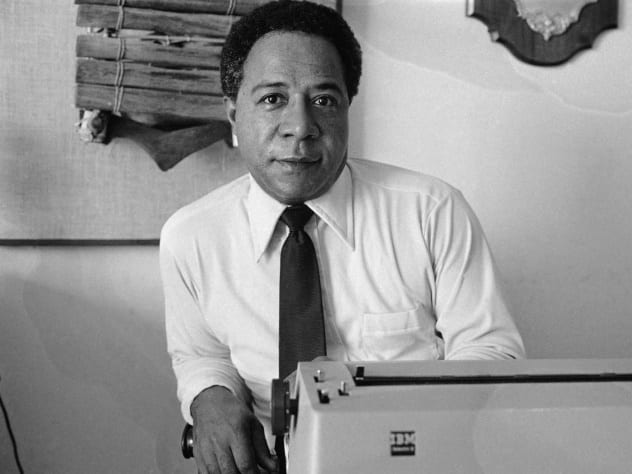
Alex Haley, the author of the massively acclaimed Roots, was famous all over the world for his book about slavery. Published in 1976, Roots was an immediate bestseller, was made into a highly successful TV miniseries, and even won a Pulitzer Prize.
Some questions had been raised about the factual basis of the book, which purported to be an account of the author’s ancestor and his journey from the Gambia to America as a slave. Haley was forced to admit that some parts of his book were fictionalized but denied that he had knowingly made any factual errors. He defended the book as “a symbolic history of a people.”
Haley had already been sued for plagiarism, a case which he won, by a well-respected writer who claimed that large portions of her book had been stolen. The judge in that case had ruled that there were only “insignificant similarities.” As soon as the first case was settled, however, Haley was hit with a second lawsuit, this time from Harold Courlander, who had written The African, which was certainly a work of fiction, since Courlander was white.
At the beginning of the trial, the judge encouraged Haley to settle, which is never an encouraging start. The defense, however, refused, so the case proceeded. Testifying in his own defense, Haley denied that he had taken any of the plot or the characters from Courlander’s book and that Roots was “the story of [his] own maternal family” through seven generations, which seems pretty definite.
He also stated that he had never heard of Courlander’s book until after Roots had been published but did acknowledge that three short passages had somehow made it from Courlander’s work into his. Asked to explain this, Haley said that “someone must have given them to [him]” when he was doing his research. He had used student volunteers to go through material for him, one of whom must have given him the passages.
After six weeks, Alex Haley finally decided to take the judge’s advice, and he settled the suit with Harold Courlander for an undisclosed amount.
Unfortunately for Haley, the suit was only the beginning of his troubles. It caused researchers to look into “the story of his maternal family,” and they found that there was very little evidence for much of the story and that it was “highly unlikely” that he would have managed to find the exact village where his ancestor Kunta Kinte was born. Haley presented the work as a historical document, rather than a novel, which permanently damaged his reputation.[11]
Read about more plagiarists on 10 Creators Who Allegedly Stole Ideas From Others and 10 Of The Worst Plagiarists In History.


